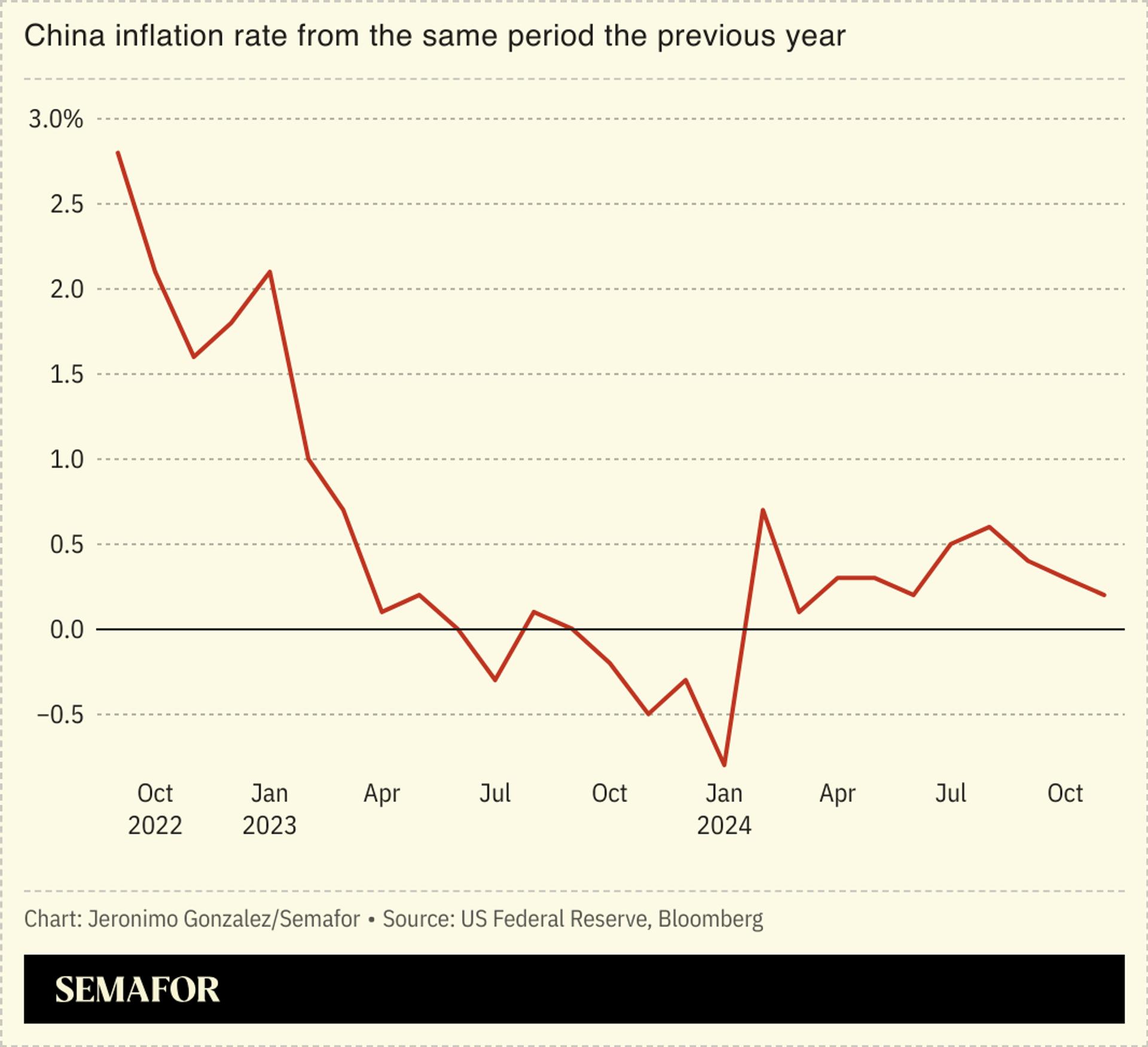The News
Consumer inflation in China unexpectedly fell to a five-month low of 0.2% ahead of a key policy meeting where government officials are expected to announce additional stimulus to boost the flagging economy.
Leaders changed their stance on monetary policy from “prudent” to “moderately loose” for the first time in 14 years on Monday, the Financial Times reported.

SIGNALS
China’s deflationary environment risks becoming a ‘self-reinforcing cycle’
China’s deflationary outlook “reinforces the impression that stimulus delivered so far is failing to revive the economy,” an economist told Bloomberg, and should prompt officials to step up such measures, another said. Deflation could become a “self-reinforcing cycle” as consumers and businesses delay purchases on the expectation that prices will keep dropping, which further depresses economic activity, an expert wrote for the Carnegie Endowment for International Peace. The fall in consumption has already taken a severe toll on several industries: Almost half of Chinese theme parks, for example, are earning no profit, with one registering just 13 visitors per day, Nikkei Asia reported.
China’s economic woes may reverberate across borders
Any kind of slowdown in domestic consumption will be felt across borders as hundreds of global companies like Apple, Volkswagen, and Burberry rely on China’s vast consumer market, the BBC reported. “Big exporters such as Australia, Brazil, and several countries in Africa will be hit hardest by this,” an expert said. But some analysts say that the impact of China on global economic growth has been exaggerated, because the country runs a huge trade surplus.
China is trying to reduce its economic exposure to Washington
Chinese leaders already have a reputation for “farsightedness,” The Economist wrote, and may be biding their time until it becomes clear just how much damage US President-elect Donald Trump’s tariff plans will inflict on the economy. But China will be in a much stronger position to withstand such threats if its government successfully reflates the economy first, the outlet argued. Beijing is trying to reduce its exposure to Washington in other ways, The Guardian reported, such as by increasing trade with countries in the Global South through zero-tariff regimes. That’s part of Xi Jinping’s effort to build a new “global market” immune to Western pressures, a China expert argued in Foreign Policy.

